Tom Varcalli
Tom Varcalli at his home in Sheridan, Wyoming.
Tom Varcalli wants to see farms supporting families again.
In 2017, the U.S. Department of Agriculture noted that the average American farm operated at a net loss — requiring off-farm income and health insurance just to break even.
“The farm can make money — but not enough to fully support the farmer,” Tom said standing among salad greens at his farm, Box Cross Road Farms in Sheridan, Wyoming. “The farmer with a spouse, the farmer with a family, the farmer with a mortgage, child support, 401K, or a late-model pickup truck. All of those expenditures take money that the farm cannot produce enough of ...”
Tom says even though a farmer can feed themself off of what they grow, there are life expenditures that the farm cannot cover.
Tom at his home in Sheridan, Wyoming.
Tom wants farms to be able to support families like they once did.
Tom is industrious. He mixes old practices with new technology to keep farm production high without degrading the land or the quality of his produce. Box Cross Road Farms is built on tradition and innovation. The chicken house is the same house that sheltered Tom’s Grandmother’s chickens. The shingles on the farm structures are nearly 100 years old. Among the antique buildings at Box Cross Road Farms, newly installed solar panels sit glistening in the late morning sun. They’re surrounded by two new high tunnels, hoop houses covered with greenhouse film, protecting everything from strawberries to cabbage inside.
Tom produces eggs, raises cattle, and grows fruits and vegetables. He sells eggs right from his porch, and mainly sells beef directly to customers. Tom’s produce is available at Landon's Local Foods Market (every Saturday year-round) and in the summer he sells at The Downtown Sheridan Farmers’ Market on Thursday evenings.

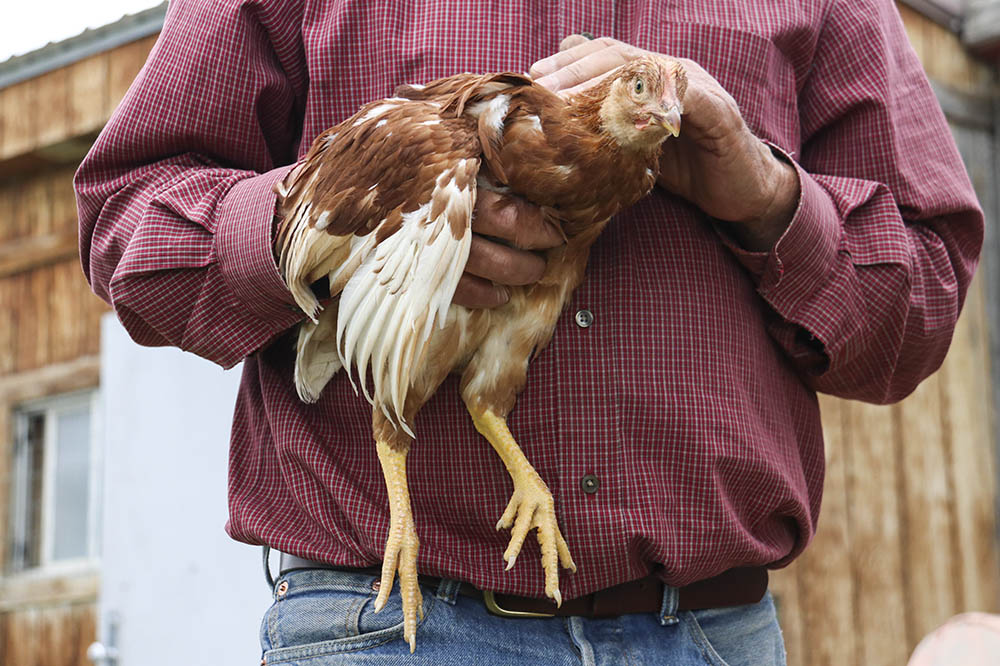
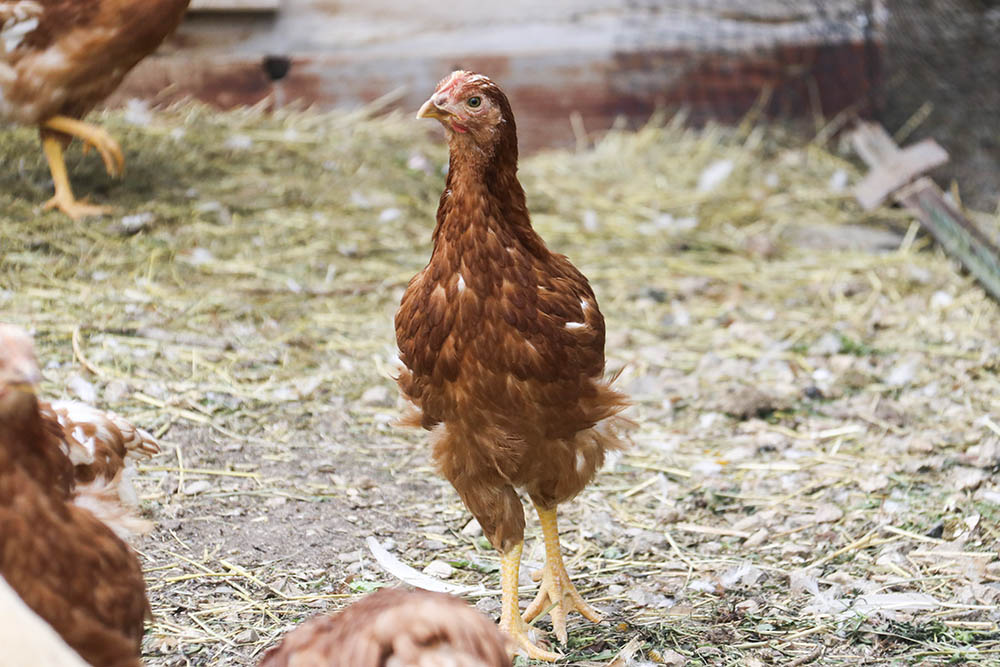
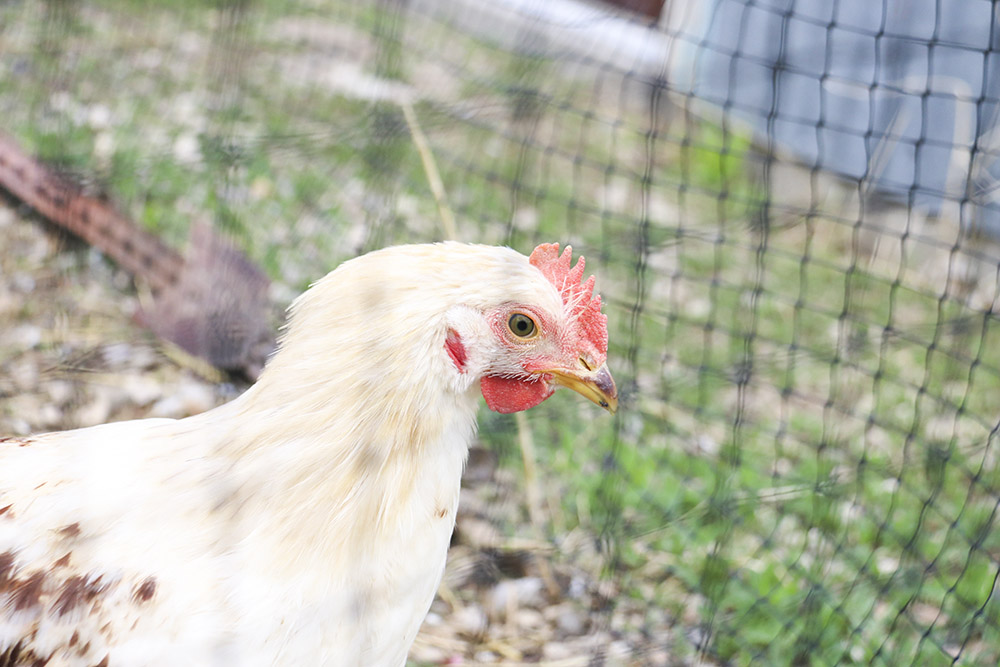
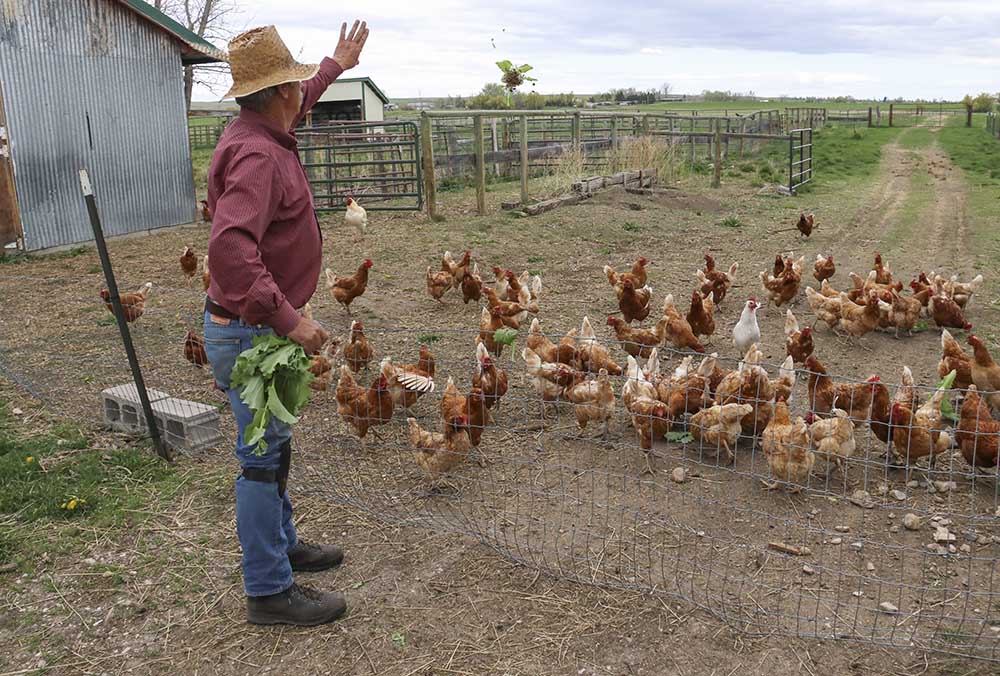
Family farming changed significantly over Tom’s lifetime. Tom farms just three miles from the spread where he was raised. It’s also just a short 13 miles from his grandparents’ homestead in the early 1900s. Tom’s grandparents' farm was able to support the family. The farm Tom grew up on required "town jobs” to support extra expenditures, but was able to provide the majority of the families income.
Tom’s own operation, however, is possible due to a full off-farm career, savings, some social security income and a pension which allows him to afford things. He spent four years in the Army Security Agency and then graduated from the University of Wyoming in 1976. He’s a retired Wyoming Game Warden and a Natrona County Master Gardener graduate.
“What it takes to afford a farm these days is significantly different from when my parents and grandparents were doing this,” said Tom.
Tom says that for other producers, who only rely on on-farm income, it’s not easy. Even with his operation doing well, it takes that off-farm income to live.
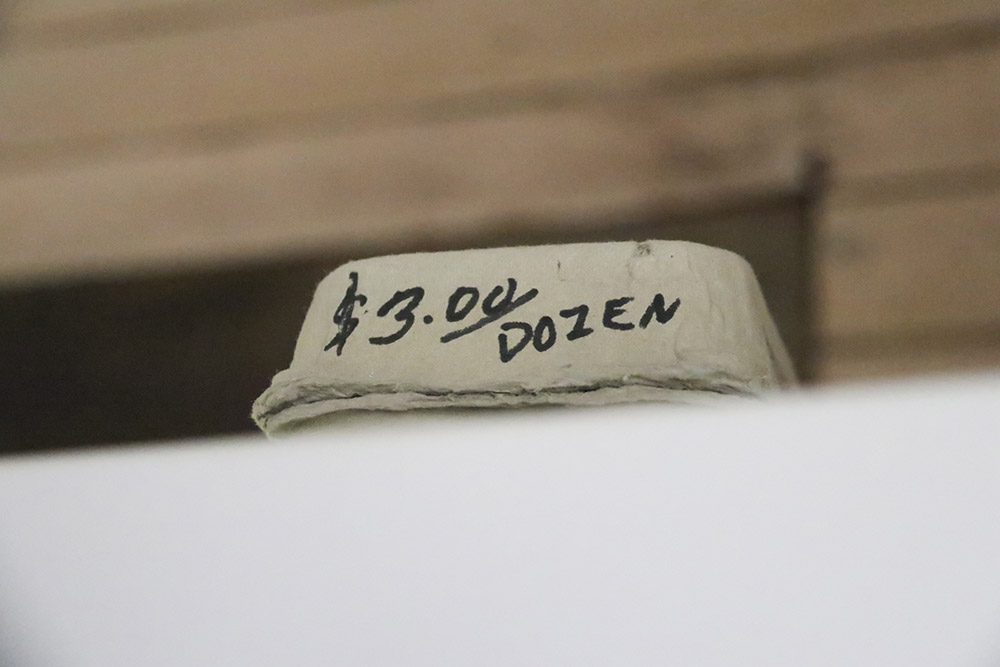
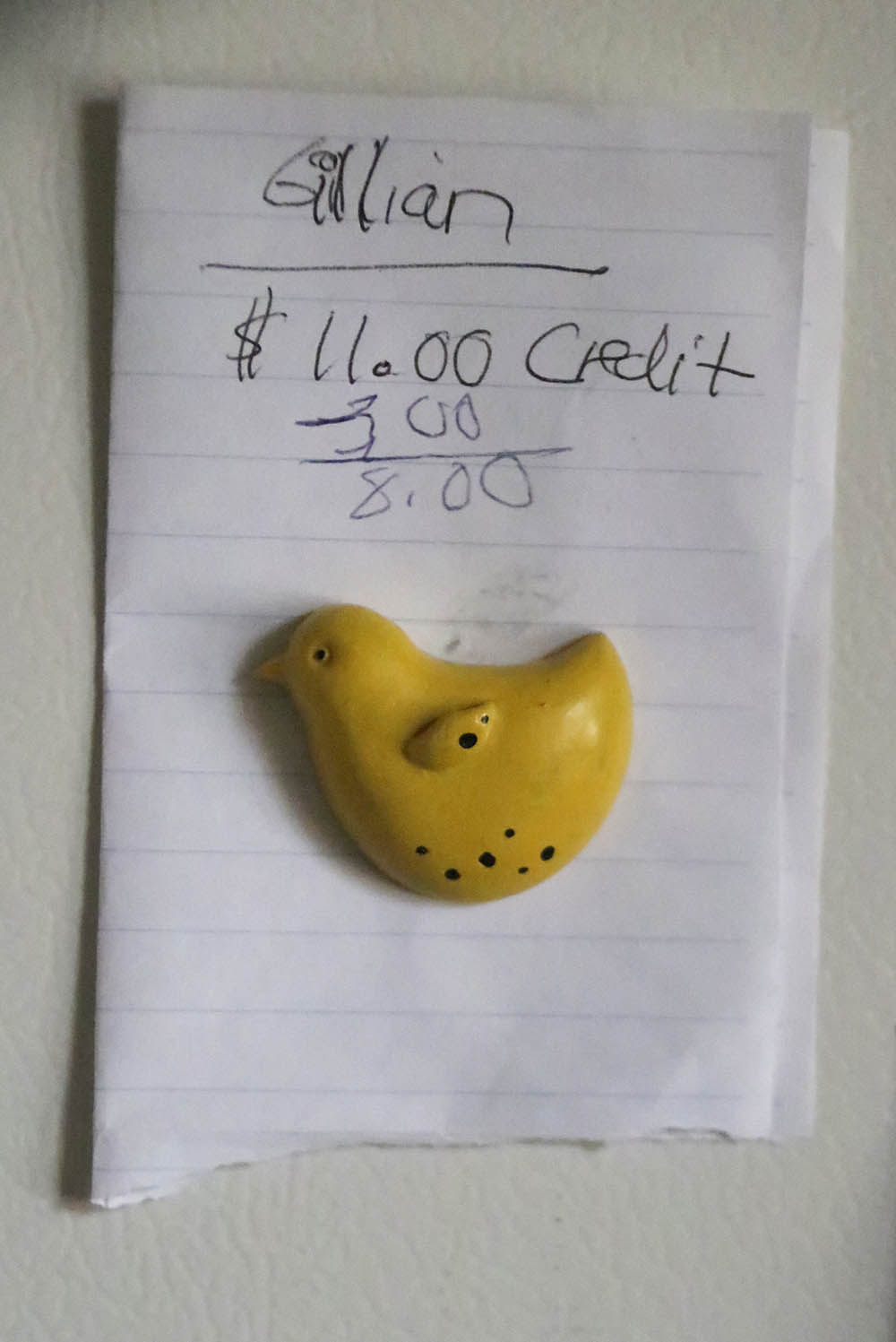

“Accumulative production does not cover accumulative costs.” Tom said. “Even if the chicken operation is doing well, the garden is producing, and people are buying my cattle, that doesn’t cover a hospital stay, a week to visit grown children in another state, a car — say for junior — and a college education. I can live off the produce and eggs and meat but it’s hard to make many outside purchases off the farm.”

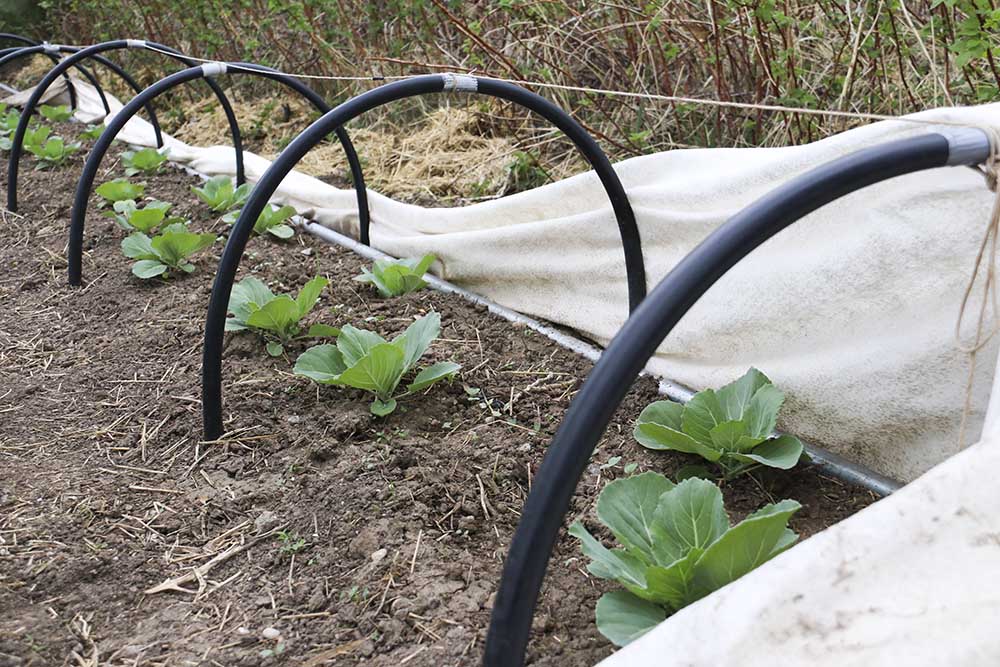
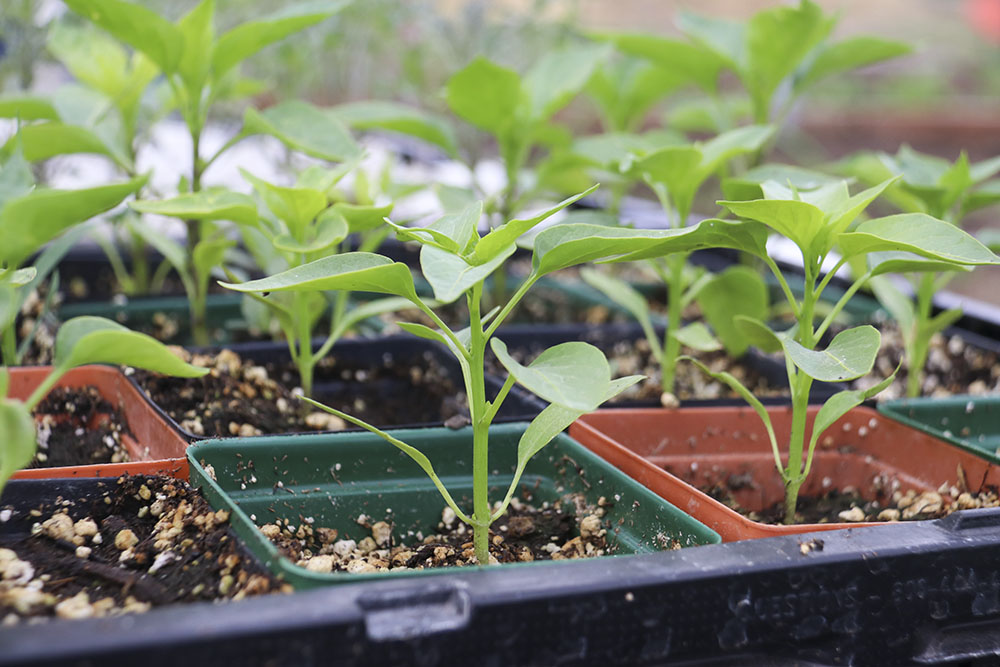
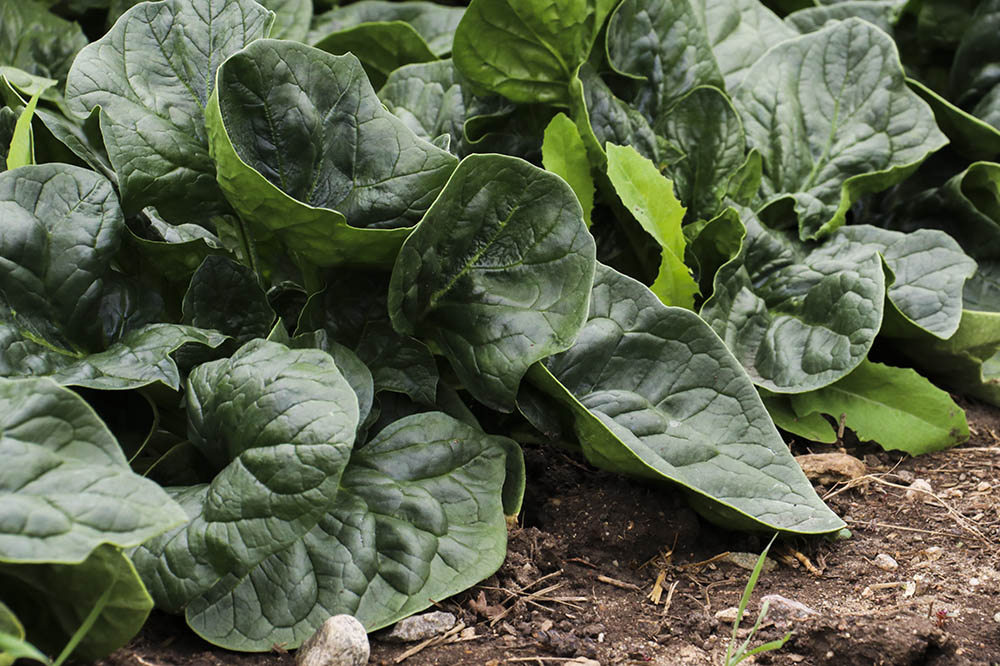

In addition to the off-farm finances to aid his operation, Tom’s industrious practices have helped the success of Box Cross Road Farms. His operation reflects many of the practices his parents and grandparents used on their farms. Tom uses old shingles to protect his transplanted plants. His cattle raising principles reflect those of his parents’ operation, never to overgraze or waste.
“Having cattle is just natural for cycling organics on the farm. Cattle are natural composters of the ubiquitous grass,” he said. “I harvest the manure by providing straw bedding in the cow barn through the winter. Cleaning it every morning and putting down fresh straw builds manure piles ultimately used for soil amendments. Short grass prairie dirt can become almost tall grass prairie dirt in the process.”
His diversified approach to small-scale ranching and market gardening helps Tom provide customers with a variety of products. Tom’s model is somewhat rare in American agriculture. Today, many farmers exclusively farm while many ranchers solely produce livestock. That kind of specialization can tax the soil health, requiring more inputs of chemicals and manure down the road to rehabilitate the nutrients and the microbes in the earth.
Over the past year, Tom expanded his operation to use new, innovative technology.
He installed his solar panels last November. Wyoming has a net metering policy that allows solar panel owners to get money back at the end of the year based on any excess their panels generate.
“At the end of the calendar year the account is settled with the utility company, and the company purchases any excess energy produced by me.” In May alone, Tom’s panels offset 712 pounds of carbon — that’s equivalent to what eight trees can do.
Tom checks the levels of his solar panels.
Tom is happy with his solar investment and sustainable lifestyle, but says there’s more to it than that when it comes to sustainability on farms. He quotes renowned organic farmer, author and educator Eliot Coleman when he says, “‘The cornerstone of sustainable agriculture is economic. You got to be able to make a living.’"
Tom wants small family farms to be sustainable for off-farm life, too.
“This generation can install renewable energy, so the next generation does not have a monthly utility bill. It’s hard to imagine a farm without diesel, gasoline, oil. Harvesting one’s own energy to power an electric vehicle; truck, tractor, four-wheeler, will eventually happen. With a breakthrough in battery technology it will happen very fast indeed.”
Tom says that despite the unsurmountable and numerous challenges in farming, it is all worth it in the end.
“What I like best about farming is the miracle of one seed producing another seed.”
Tom working in the greenhouse at Box Cross Road Farms.




